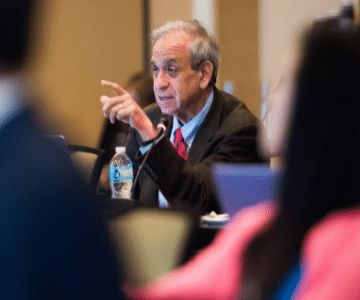Management of Toxicities After Bispecific Antibody Therapy in Non-Hodgkin Lymphoma Scientific Series
Bispecific antibodies (bsAbs) are a new class of immunotherapy drugs and represent a new innovative treatment option for patients with B-cell non-Hodgkin lymphoma. There are currently three BsAbs therapies that are currently approved for diffuse large b-cell lymphoma and follicular lymphoma. Several other bsAbs are in development for patients with lymphoma and chronic lymphocytic leukemia/small lymphocytic lymphoma.
This new class of drugs also have the potential to lead to severe side effects, including cytokine release syndrome and neurological effects (including a type of neurological damage caused by immune cells called immune effector cell-associated neurotoxicity syndrome, or ICANS).
Given the severity of the side effects, the Lymphoma Research Foundation convened a scientific series in 2023 that focused on evidence-based best practices in the management of toxicities, including cytokine release syndrome, relating to bispecific antibody therapy in non-Hodgkin lymphoma to address the need for clinical guidelines. The information presented resulted in the development of toxicities management strategies and information relevant to the use of this novel therapy in the treatment of people with lymphoma. In January 2024, these key findings were published in Blood.


